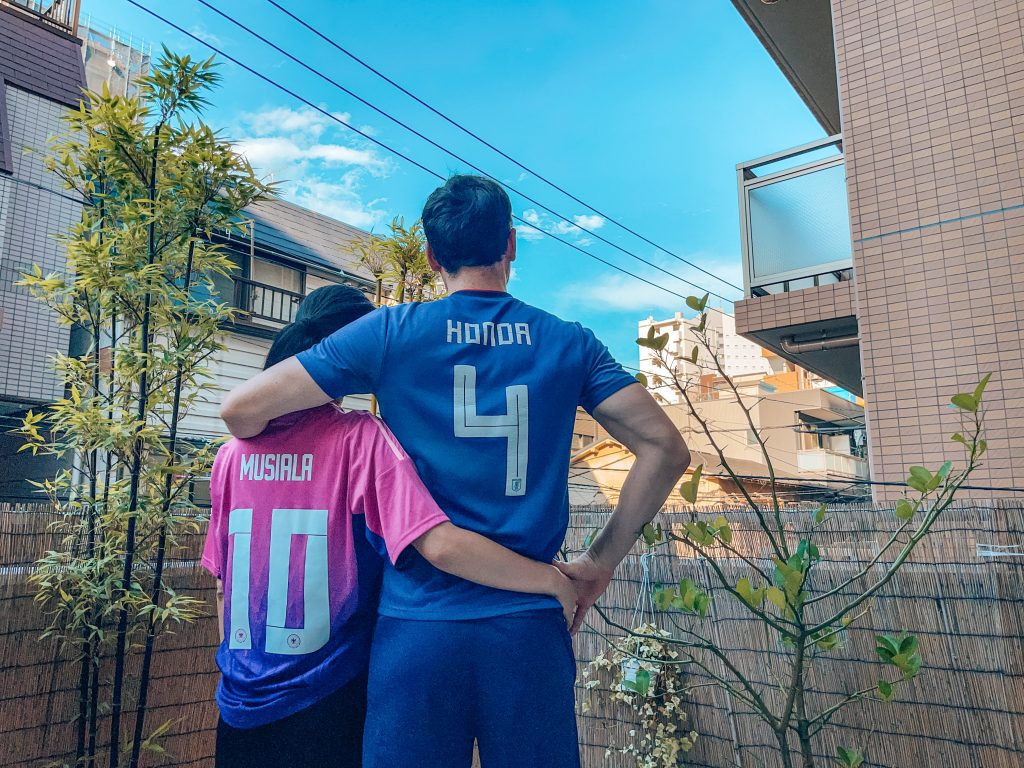
It’s a hot summer day in Tokyo. To escape the heat, my wife and I decided to take a short day trip to the beaches of Enoshima. After an hour-long train ride and a quick dip in the sea, we stroll along the bustling promenade of Nishihama Beach with its various beach houses that are put up every summer to welcome party-hungry university students and families alike. Suddenly, we hear a loud yell behind us that seems to be directed at me. My wife looks at me in shock, “Did these guys just insult you?”. But I knew what was going on since this was not the first time this had happened: They yelled out “Maki,“ the name of the local baseball team, Yokohama Baystars’ star player, whose jersey I was wearing at that moment. I turn around and give the guys a quick wave and a thumbs up, which is answered by more cheers and yells. The magic of the Maki jersey has struck again.
A unique form of cultural communication
The most significant sports leagues in the world, like the English Premier League for football or the American NBA for basketball, are global marketing machines, and their top players’ jerseys have become bestsellers worldwide. International superstars from non-westernized countries like Japan are often few and far between (the exception proves the rule; I’m looking at you, Ohtani). This fuels public appreciation in those countries for anyone from abroad who values local players. Nobody will look at a Westerner wearing a Christiano Ronaldo jersey twice, but walking through Tokyo in a Keisuke Honda shirt will most likely get you some friendly looks and maybe even a few appreciative nods.
A perfect mix of the right team, player, and place can provoke a much more potent (positive) reaction, as displayed in the Maki incident. But this goes both ways; if I see Japanese people with jerseys of German players or teams, I’m always inclined to approach them. There is no telling what I would do if I encountered e.g. a Japanese guy in a Hertha BSC Berlin jersey (my favorite team) with my favorite player on the back. I might even call out to him across the street.


Star players are transcending their teams
Of course, anecdotal evidence like this won’t hold up in a court of law; however, my experiences highlight that star players have long transcended their respective teams’ popularity. This doesn’t apply exclusively to worldwide phenomena like Lebron James and Lionel Messi, whose social media presence is much more significant than that of their teams. Even on a more local level, the identification with a club or team seems to root in the affinity for a single player more often than not. So maybe “the magic of the Maki jersey” isn’t magic after all?!
The bottom line
Supporting a sports team is a great way to satisfy the tribal mindset engrained in our DNA. Picking out individual players helps us identify with the chosen group even more. So why not use this to our advantage and communicate our sense of belonging to a foreign country through our choice of sportswear? Give it a try, and you will discover the magic aspect of your favorite player’s jersey soon enough.

